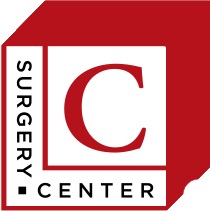Is it Time for Cataract Surgery?

Cataracts affect about one in every six Americans over the age of 40, making them the most common cause of vision loss in the United States. A cataract is a clouding of the eye’s lens, which is made of water and protein. Through age and oxidative damage, the protein in the lens begins to clump together and create a cloudy area known as a cataract.
The good news is that cataract-related vision loss is reversible through surgery. There is no prescribed age for cataract surgery, so it is up to you and your eye care professional to decide when you should schedule the procedure. Even though it is one of the most common surgeries performed in the United States, cataract surgery can still seem quite intimidating. However, the benefits of cataract surgery are numerous, including restored vision and the ability to resume all the daily activities you enjoy.
If you are unsure of when you should have your cataracts removed, you are not alone. The American Academy of Ophthalmology has developed a list of four questions to help you determine when it is time to schedule cataract surgery:
- Are cataracts negatively impacting your daily or occupational activities? Common symptoms of cataracts are blurred vision, double vision, lack of contrast, increased glare, and sensitivity to light. This can make activities like reading, driving, cooking, or doing housework or yard work increasingly difficult.
- Are cataracts affecting your ability to drive safely at night? Another symptom of cataracts is the appearance of “halos” around lights and difficulty seeing in low light conditions. This can make driving extremely challenging and even dangerous.
- Are your cataracts interfering with the outdoor activities you enjoy? Sensitivity to light can be distracting, annoying and even painful because of your cataracts, and this may discourage you from spending time outside.
- Can you manage your cataracts in other ways? If you are not ready for cataract surgery, can you compensate for changes in your vision by using brighter light bulbs and contrasting colors in your home and workplace? Other small changes may include using a magnifying glass for reading or purchasing polarized sunglasses to reduce glare.
Cataract surgery is available to you when you and your ophthalmologist agree that you are ready. Ravi D. Goel, M.D., cataract surgeon and a clinical spokesperson for the American Academy of Ophthalmology, gives a good explanation by saying, “If cataracts aren’t disrupting your life, you can probably wait and have surgery when they really start to bother you. But for those who are feeling impeded by their blurry or dulled vision, the procedure can make a significant beneficial impact” (Source: American Academy of Ophthalmology).
